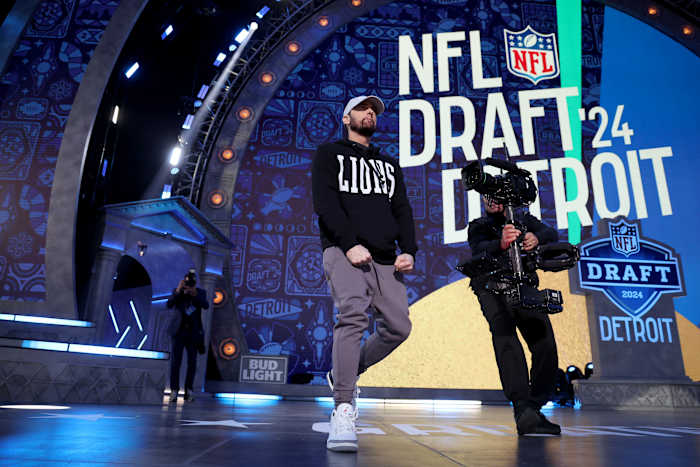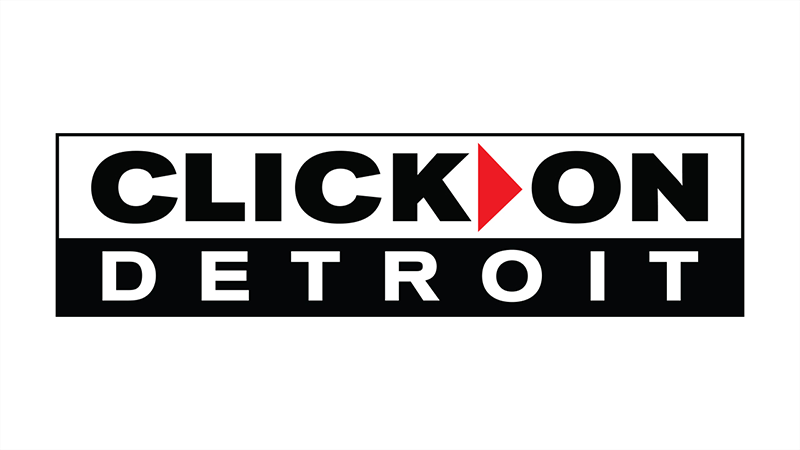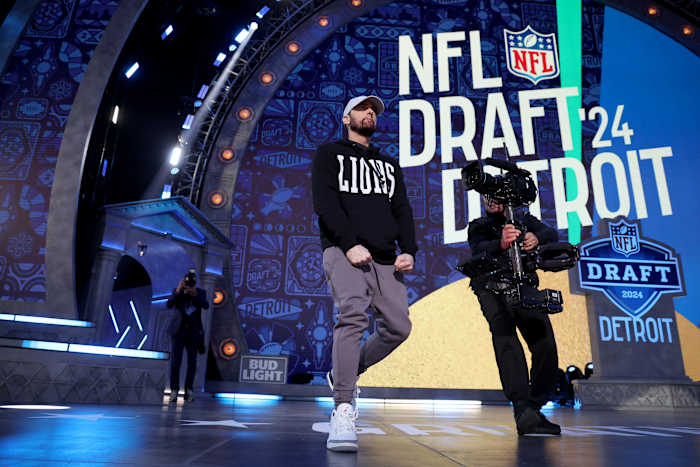“Eminem’s Iconic Anthem Sparks Heated Battle: Publishing Company Sues Metro Detroit Dealership Over Music Rights” In a move that’s got the music industry buzzing, a publishing company representing the legendary rapper Eminem has fired a lawsuit at a Metro Detroit dealership over the use of his chart-topping anthem “Lose Yourself” in a recent advertising campaign. The high-stakes battle centers around the unauthorized use of Eminem’s iconic track, which was featured in the blockbuster movie 8 Mile and has since become synonymous with the rapper’s meteoric rise to fame. As the world waits with bated breath to see how this dispute plays out, one thing is clear: the rights to “Lose Yourself” are about to get a whole lot more valuable. In this article, we’ll dive into the details of the lawsuit, exploring the potential implications for both the dealership and the music publishing industry as a whole.
The Lawsuit: Eminem’s Music Publishing Company Takes on Metro Detroit Ford Dealership

Eminem’s music publishing company, Eight Mile Style, has filed a lawsuit against La Fontaine Ford St. Clair, a Metro Detroit Ford dealership, accusing them of copyright infringement in federal court.

The Lawsuit Details: Eight Mile Style Files Suit Against La Fontaine Ford St. Clair
The lawsuit alleges that the dealership used Eminem’s hit song “Lose Yourself” in online advertisements for special edition Detroit Lions F-150 pickup trucks without permission. Eight Mile Style controls Eminem’s early catalog and is seeking damages and a cease and desist order.

The Alleged Infringement: How and When the Song Was Used
The ads allegedly ran on Facebook, Instagram, TikTok, and other social media sites from September to October 2024. The ad’s caption, “You only get one shot to own a Special Edition Detroit Lions F-150,” potentially references the song’s lyrics, further solidifying the connection between the dealership’s ad and Eminem’s iconic song.
The Request for Relief: Eight Mile Style Seeks Damages and Cease and Desist Order
Eight Mile Style is asking a judge to find that the dealer violated their copyright and order it to cease and desist. Additionally, they are seeking a judgment for damages and profits related to the infringements of the publisher’s copyright.
The Connection: Eminem, the Detroit Lions, and the Motor City
Eminem’s Ties to Detroit: A Lifelong Connection to the City and the Lions
Eminem, born Marshall Mathers, grew up in Detroit and has been a lifelong fan of the Detroit Lions. He frequently attends Lions games at Ford Field, and his reputation as a die-hard fan is well-known.
The Significance of “Lose Yourself”: A Song That Embodies Detroit’s Spirit
“Lose Yourself” is not only an Oscar-winning song but also an anthem for Detroit and the Lions. Its enduring popularity is a testament to its impact on the city and its people. The song’s connection to Detroit and the Lions makes the alleged infringement even more significant.
The Implications: What This Lawsuit Means for Copyright Holders and Advertisers
The Impact on Copyright Holders: Protecting Intellectual Property in the Digital Age
This lawsuit highlights the importance of vigilance in monitoring and enforcing copyright infringement. Failure to protect intellectual property can have significant consequences for copyright holders. The lawsuit serves as a reminder of the importance of protecting one’s work in the digital age.
The Implications for Advertisers: The Risks of Using Copyrighted Material Without Permission
The lawsuit also serves as a warning to advertisers to avoid using copyrighted material without permission. The potential consequences of copyright infringement can be costly, both financially and reputationally. Advertisers must take steps to ensure they have the necessary permissions and licenses to use copyrighted material.
The Response: La Fontaine Automotive Group’s Statement and Next Steps
The Official Statement: A Spokesperson Responds to the Lawsuit
In response to the lawsuit, a spokesperson for La Fontaine Automotive Group stated that they have terminated their contractual agreement with the third-party vendor responsible for the ad. The dealership is taking steps to address the lawsuit and mitigate any potential damage.
The Potential Fallout: How This Lawsuit May Affect La Fontaine Automotive Group’s Reputation
The lawsuit may have negative consequences for La Fontaine Automotive Group’s reputation, potentially affecting their business and customer relationships. The dealership must take steps to address the issue promptly and transparently to minimize the damage.
Conclusion
Conclusion:
In a shocking case of copyright infringement, Eminem’s publishing company, Interscope Records, is suing Metro Detroit dealership, Rino’s Auto Group, for using its hit single “Lose Yourself” in their advertisements. The controversy has sparked a heated debate about the role of music in advertising and the boundaries of creative expression. The lawsuit centers on a 2002 commercial featuring Eminem’s iconic song, which the publisher claims is a copyrighted work. The dealership, on the other hand, insists that it was parodying the song and did not intend to infringe on the original work.
This case highlights the importance of music licensing and copyright protection in the advertising industry. The Supreme Court has established that “Lose Yourself” is a copyrighted work, and its use in advertising must comply with the terms of the licensing agreement. The dealership’s actions demonstrate a clear disregard for these guidelines, raising questions about the limits of free speech and the role of creative expression in advertising. The case has implications for the music industry, advertising professionals, and consumers alike. As the debate continues, it is essential to consider the nuances of copyright law and the importance of respecting intellectual property.
Significance and Implications:This case serves as a microcosm of the larger issues surrounding music licensing, copyright protection, and the role of creative expression in advertising. As the music industry continues to evolve, the importance of these issues will only grow. The Supreme Court’s decision in this case will have far-reaching implications for the music industry, advertising professionals, and consumers. Furthermore, the case highlights the need for robust copyright protection and clear guidelines for the use of copyrighted music in advertising. As we move forward, it is essential to strike a balance between creative expression and respect for intellectual property.
Forward-Looking Insights:As the music industry and advertising continue to innovate and evolve, it is crucial to prioritize copyright protection and intellectual property rights. The Supreme Court’s decision in this case serves as a reminder of the importance of respecting the creative work of artists and writers. In the age of social media and streaming services, the lines between original content and parody are becoming increasingly blurred. As we navigate this complex landscape, it is essential to develop clear guidelines and protections for intellectual property.
Strong, Impactful Statement: “The unauthorized use of Eminem’s iconic song ‘Lose Yourself’ in advertising sets a disturbing precedent for creative expression and intellectual property rights. As we move forward, it
